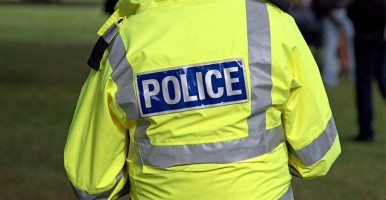Widgetized Section
Go to Admin » Appearance » Widgets » and move Gabfire Widget: Social into that MastheadOverlay zone
Police Officers as Street Bureaucrats
The views expressed are those of the author and do not necessarily reflect the views of ASPA as an organization.
By Thomas Barth
May 19, 2017
As a professor of public administration, facilitating a series of conversations between police and neighborhood residents in Wilmington, NC has provided many teachable moments. One of these situations is the demands placed on police officers as they carry out their duties in communities where they may not be very welcome and can be treated with suspicion, fear and disrespect. When we talk about a street bureaucrat in public administration, a term associated with scholar Michael Lipsky, it is in the context of managing situations where discretion is a constant; that is, rules, procedures and guidelines must be interpreted in the context of what is happening on the ground. This requires a special person who must understand the history of a community and the ability to appreciate how this history shapes how they are perceived in their role. They must also have an appreciation for how every interaction with a resident can further shape the perception of their profession throughout the community, especially in the age of social media. Individual acts can have enormous ripple effects. This responsibility becomes weightier when one considers in communities that feel disengaged and left behind by the power structure, interactions with representatives of that structure like the police (or teachers, social services caseworkers, DMV officials) can through their actions provide hope and optimism or deepen resentment and alienation. Police may be the most potent of these representatives because of their legitimate power to exercise all levels of force and take away someone’s liberty.
As one police officer shared, in high tension neighborhoods, their role is much more than just enforcing the law by writing tickets, making arrests and at times using force. They are being asked to balance their use of power and authority with interpersonal sensitivity, respect, and restraint whenever possible. To protect their personal safety, they also must have the instincts to decipher who is a real threat and who is someone who can be reasoned with and managed without excessive use of force.
This is a tall order under any circumstance, but consider the following sentiments by police officers:
- New recruits are scared to death with all the guns on the streets.
- When did we become the bad guys?
- I would not go into the profession if I was starting my career today; there is too much media scrutiny and community distrust.
- Minority youth are taught to fear and distrust the police
- It is hard to be interpersonally sensitive in hostile environments
The responsibilities of police officers on the streets are daunting, particularly in minority neighborhoods with a history of racial tension. Police officers are not merely enforcing the law; they are the ambassadors for government and play a significant role in shaping the beliefs and attitudes of residents in struggling neighborhoods.
A response to this reality is the training on community policing that is occurring throughout the country, but it is also important to share concrete examples of police officers playing this ambassador role. I recently had the good fortune to be a judge and presenter of the Regional Excellence Awards for the Centralina Council of Governments in the greater Charlotte region. One of the award recipients under the “Improving the Quality of Life” category was the Woodstone After School and Mentoring Program. Woodstone apartments is a fifty unit complex located in Charlotte. It is a multi-family, Section 8 complex mostly comprised of single parent families on limited incomes. The area was crime filled and left little hope and opportunity for advancement. Seeing a need for change the manager began working with Lieutenant John Thornton of the Charlotte Mecklenburg Police Department to better the community and provide help to those who wanted to better their lives and the lives of their families. The police fulfilled their traditional law enforcement role by cleaning out the drug dealers, petty criminals and gang members, but they also became regular participants in an after school program by reading to the children. Officer B.K. Russell, a 27 year veteran of the department shared the following:
When I first started to work here seven years ago, children were intimidated by the police. And if their parents saw us talking to their kids, they’d pull them away from us an go into their homes. Now, kids see us and they come running to us.
Society needs responsible street level bureaucrats like Officers John Thornton and B.K. Russell who realize making a difference in the lives of community residents means more than sticking to a narrow view of their role. An important lesson for public administrators in all walks of life!
Author: Tom Barth is a Professor of Public Administration and Director of the Master of Public Administration (MPA) program at UNC Charlotte. He teaches, conducts research, and consults in the areas of organization development, human resource management, strategic planning, facilitation and public administration ethics.


Follow Us!